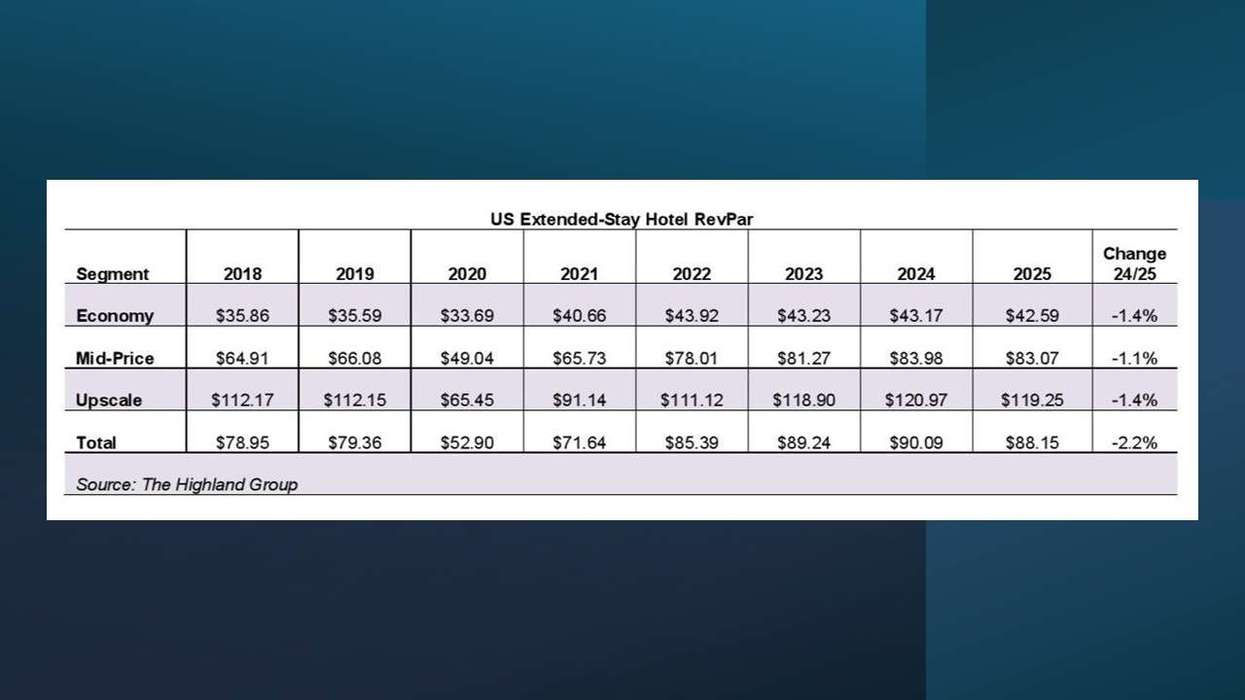THE FINAL FULL week of March ushered in severe declines in occupancy, ADR and RevPAR for U.S. hotels, according to STR. Such steep drops may be part of the “new normal” created by the COVID-19 pandemic.
During the week of March 22 to 28, occupancy dropped 67.5 percent to 22.6 percent, ADR went down 39.4 percent to $79.92 and RevPAR declined 80.3 percent to $18.05.
“Year-over-year declines of this magnitude will unfortunately be the ‘new normal’ until the number of new COVID-19 cases slows significantly,” said Jan Freitag, STR’s senior vice president of lodging insights. “Occupancy continues to fall to unprecedented lows, with more than 75 percent of rooms empty around the nation last week. As projected in our U.S. forecast revision, 2020 will be the worst year on record for occupancy. We do, however, expect the industry to begin to recover once the economy reignites and travel resumes.”
The declines were steeper when focused on just the total amounts for the nation’s top 25 markets, where occupancy dropped 74.5 percent to 19.6 percent, ADR declined 43.9 percent to $89.71 and RevPAR was down 85.7 percent to $17.60
New Orleans saw the steepest decline in RevPAR, falling 92.8 percent to $10.27, due primarily to the second-largest decreases in occupancy, down 84.9 percent to 12.7 percent, and ADR, down 52.3 percent to $80.74.
Occupancy fell furthest in Oahu Island, Hawaii, plummeting 86.4 percent to 10.5 percent, while Miami/Hialeah, Florida, posted the largest decline in ADR, falling 57.9 percent to $116.64.
Occupancy in New York was down 81.8 percent to 15.2 percent and down 76.6 percent to 18.5 percent in Seattle.
For the week ending March 21, 11 million room nights were sold in the U.S., less than half the 23 million sold during the prior week, according to STR’s “COVID-19 webinar summary: 5 key points on U.S. & Canada (26 March).” Luxury and upper upscale hotels were most effected by cancellations of meeting and group business, while the economy segment saw the lowest RevPAR decline, 47.7 percent for the same week.
“As per location, it hasn’t been a surprise that urban and resort hotels have posted the steepest RevPAR declines,” the webinar summary said. “However, interstate properties have seen less RevPAR impact due to transportation companies still working. The same happened to the hotels located in small towns, which are isolated from severe demand declines. However, the absolute RevPAR level in those areas is already fairly small.”





